‘Reacher’ takes machismo to the next level. We break down its tough-guy act
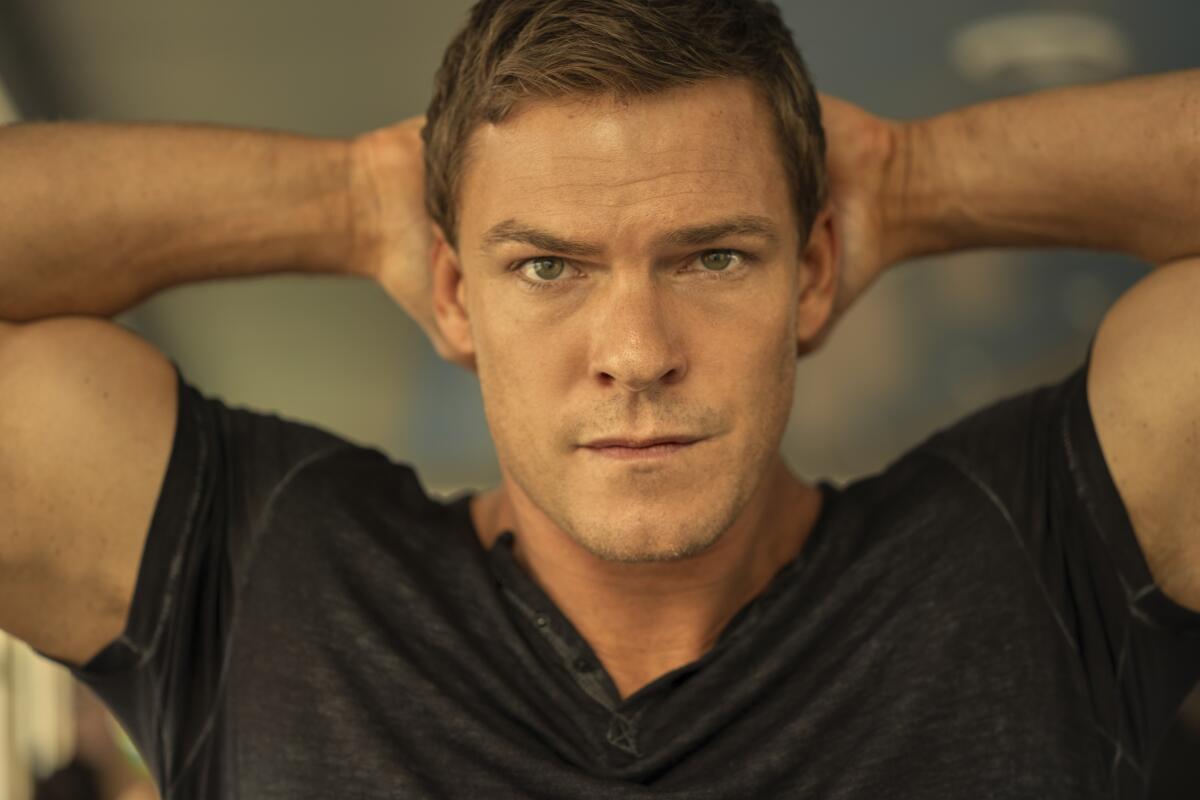
- Share via
This is the Los Angeles Times newsletter about all things TV and streaming movies. This week, we play guide to filmmaker Joachim Trier, discuss the uber-machismo of “Reacher” and more. Scroll down!
Welcome to Screen Gab, the newsletter for everyone who knows “Be My Lover” is a top-tier club jam.
If we can all agree that the ’90s-inflected soundtrack to “Pam & Tommy” slaps, as the kids say, the question of how it handles the sex tape saga of subjects Pamela Anderson and Tommy Lee is an open — and far more contentious — question. As TV critic Lorraine Ali writes in her review of the Hulu series, which premiered Wednesday, the “stupidly entertaining” ’90s romp hits a snag when it attempts to treat the tape’s theft and subsequent distribution as fodder for post-#MeToo reconsideration.
It’s not for lack of attention to detail. Lily James, acting opposite Sebastian Stan, disappears into Anderson, as Amy Kaufman writes in her profile of the actor, and the series, based on a 2014 Rolling Stone investigation, follows the beats of real-life events closely. There are glimmers of the actor Anderson hoped to become and sympathy for the leering she so often had to endure.
But try as it might, “Pam & Tommy” — developed by men (Seth Rogen and Evan Goldberg) from an article whose main character (electrician/tape thief Rand Gauthier) is a man — also can’t shake that leering, which is, after all, central to Gauthier’s half of the narrative. (See also, and this is not a metaphor, Tommy’s talking penis.) And the broad, almost slap-happy sensibility that makes its ’90s nostalgia quotient so much fun may have an unintended knock-on effect: limiting the tools the series has to deal with its more serious themes, like Gauthier’s violation of Anderson and Lee’s privacy.
Your mileage may vary, of course, and with five episodes still to air, the court of public opinion remains in session. “From one perspective, you could say that the creators of this show are cis, white males,” as Lake Bell, director of two episodes, told The Times. “But in the same breath understand that there were strong creative forces who were women who’d been through very similar situations. And we had a responsibility not to exploit Pam once again.”
The complete guide to home viewing
Get Screen Gab for everything about the TV shows and streaming movies everyone’s talking about.
You may occasionally receive promotional content from the Los Angeles Times.
ICYMI
Must-read stories you might have missed
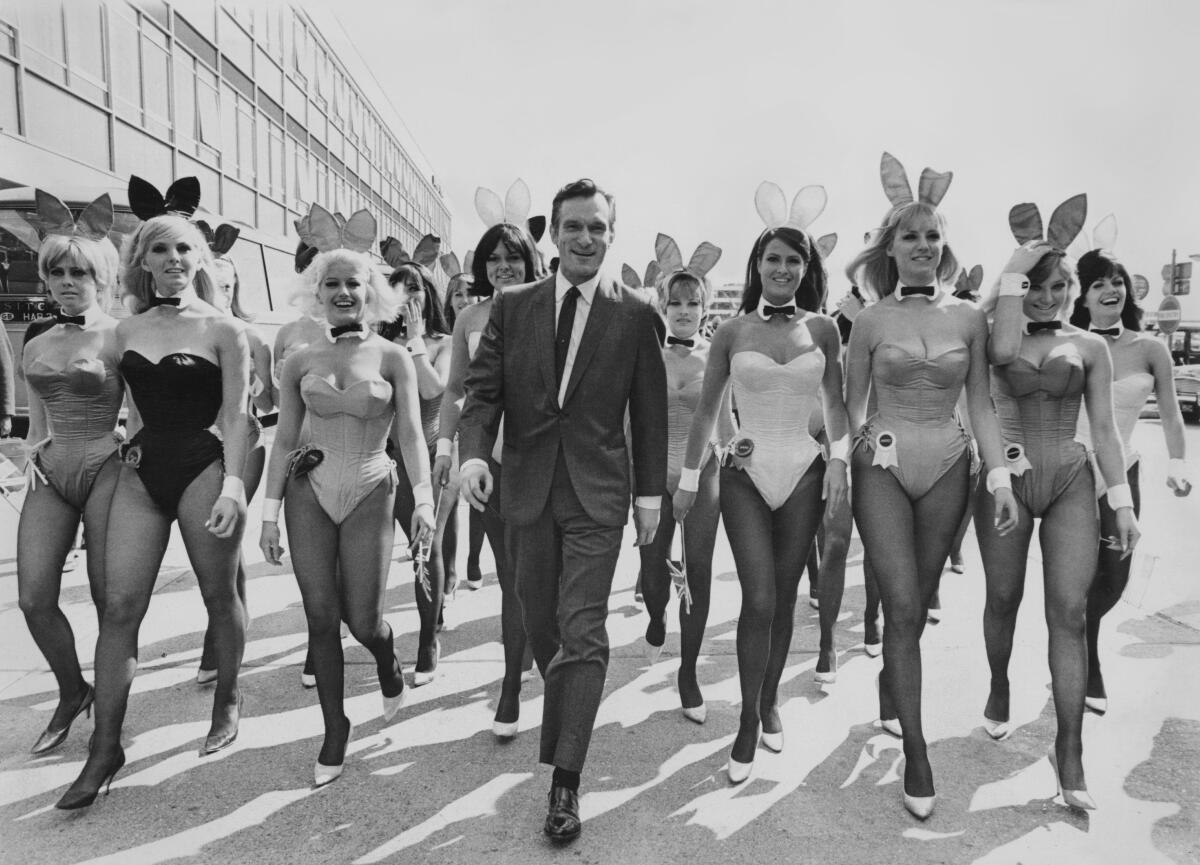
‘Secrets of Playboy’ is not the Hugh Hefner takedown you were expecting: A&E’s docuseries promises to shatter the “fable” that fueled an empire, but creative failings mean its bombshells add up to less than they should.
They thought they were getting a home makeover. It turned into a fiasco: An alleged “construction Ponzi scheme” involving the series “Home Work” threatens to tarnish the reputation of TV’s hottest home renovators.
The ‘cowboy hard’ life and songs of ‘Yellowstone’s’ Ryan Bingham: Already an Oscar-winning singer-songwriter with a dedicated following, Ryan Bingham is now TV famous for his role as Walker on the hit series “Yellowstone.”
‘And Just Like That’ was a train wreck. Here’s what made it unmissable anyway: Where did the “Sex and the City” reboot go wrong? And what made TV’s answer to Stockholm syndrome so compulsively watchable? We break it all down.
Turn on
Streaming recommendations from the film and TV experts at The Times
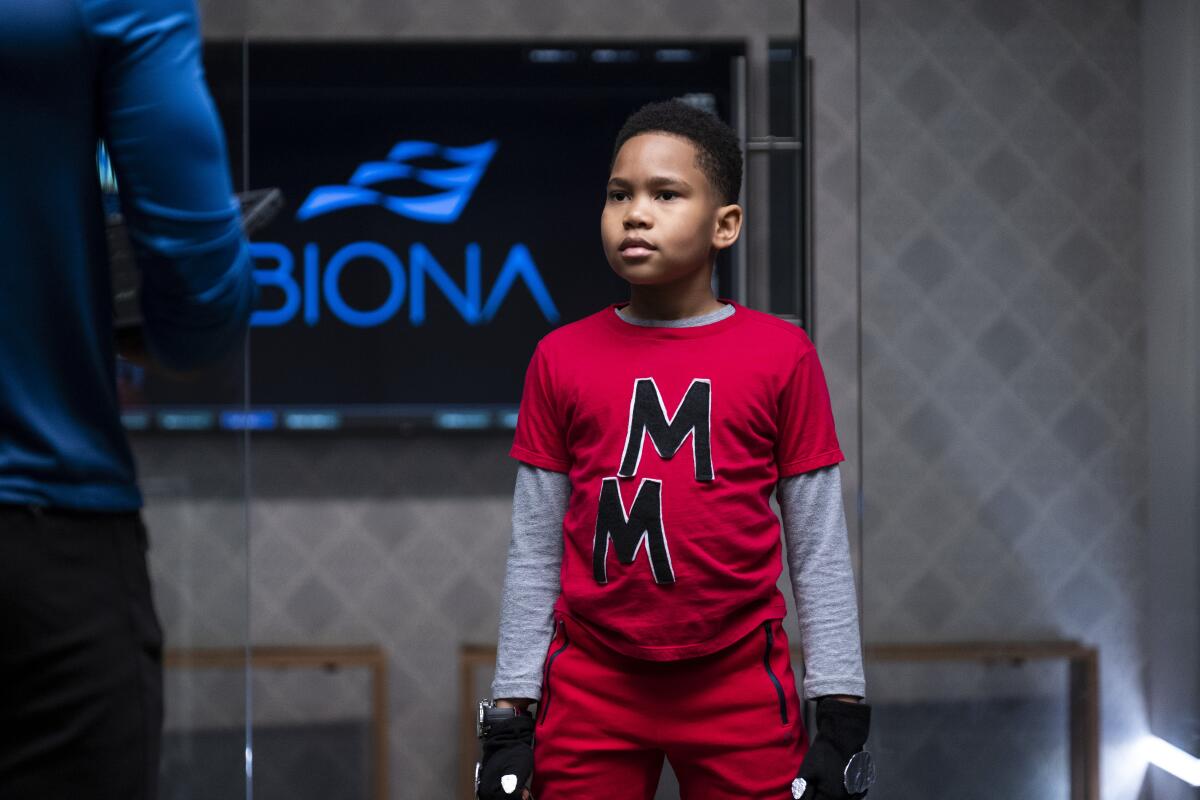
Two years and change after its first season, “Raising Dion,” a show about a little boy (Ja’Siah Young) whose emerging superpowers present special challenges to his widowed mother (Alisha Wainwright), returns to Netflix. Young (as the Black Superhero you didn’t see coming) was young enough during the first season that he’s still a little kid in this one, having moved only from second to fifth grade, with a lot to learn and a new classmate (Griffin Robert Faulkner) who prefers Darth Vader to Obi-Wan Kenobi. Although the series retains a variety pack of familiar sci-fi tropes — good mutants versus bad, institutional overreach, parasitic infection — it’s the human element that counts: As before, the series wanders into byways of romance, family matters and Our Gang camaraderie, and where the plot is less than sensible, it’s often in the service of feeling. The progress of an elementary-school musical revue, which shines a spotlight on Sammi Haney as Esperanza, proceeds alongside that of the science fiction and means as much. Unlike so many bigger-budget, bigger-name, super-powered slugfests, its heart is not artificial but the real thing. —Robert Lloyd
The denizens of the Nail Artisans of Manatee County are hustling after bad decisions and terrible plans went awry in Seasons 1 through 3. But if you’ve been along for this tumultuous, Carl Hiaasen-tinted view of “Palm-ghetto,” Fla., you’ve become used to the sharp turns in one of TV’s most colorful dark dramedies, and I’m not just talking about the fashion. Sunday marks the series finale, and Desna Sims (Niecy Nash-Betts) and her crew of manicurists/money launderers/drug dealers/grifters/BFFs — really, there aren’t enough slashes for the things they think up — find themselves navigating another desperate plan. As real-life friends do, the members of the core crew (the greats Jenn Lyon, Judy Reyes, Carrie Preston and Karrueche Tran) have acquired each others’ characteristics over time, and now they’re all “bad b—.” (Their words, not mine.) But “Claws” (TNT) has managed to make sympathetic characters out of all the slashes and take on class, race, social hierarchies and inequalities both economic and personal; these are good people doing bad things for relatable reasons, family being at the top. Spoiler alert: You might be looking for “Orange Is the New Black: The New Class,” but if you know this show as I do, you know it’s going to be wild, and it’s always going to be, as they say, “Claws up.” And Linda Hamilton! —Dawn M. Burkes
Catch up
Everything you need to know about the film or TV series everyone’s talking about
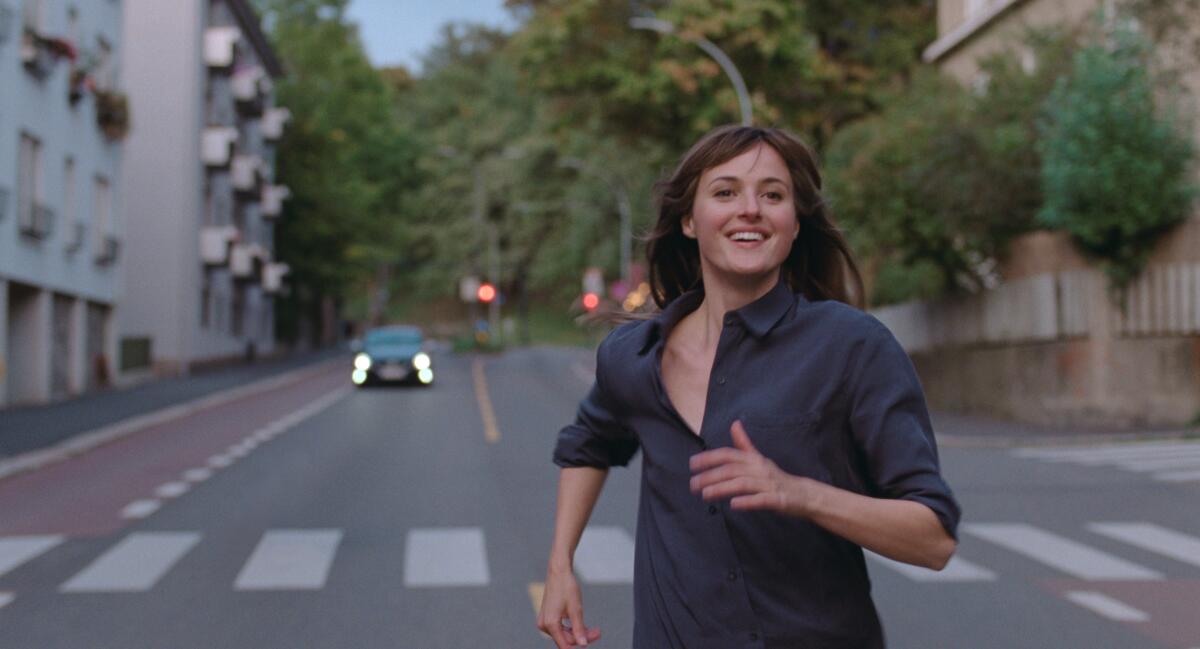
“I think art has to be messy and free,” a comic-book author (Anders Danielsen Lie) says in “The Worst Person in the World,” the sublime romantic dramedy that opens in theaters this week. Selected to represent Norway in the Oscar race for best international feature, it’s the fifth feature from the director and co-writer Joachim Trier, who has long been devoted to the pursuit of messiness and freedom in his art. That much was clear in his critically lauded 2006 debut feature, “Reprise” (Amazon Prime Video), a tale of two young writers that proceeds with some of the spark and vitality of “Jules and Jim” and other early classics of the French New Wave.
“Reprise” established a couple of foundations for Trier: a sustained focus on the inner lives of young characters; an unbroken writing partnership with his friend and fellow filmmaker Eskil Vogt; and a stream of roles for Lie, one of Norway’s top actors. Lie also starred in Trier’s devastatingly assured 2011 drama, “Oslo, August 31st” (multiple platforms), an adaptation of a novel by Pierre Drieu La Rochelle in which Lie plays a recovering drug addict on a fateful day’s leave from rehab. It remains my favorite of Trier’s movies: sparer and bleaker than “Reprise,” but in its way no less inventive in the way it handles and dismantles the conventions of the addiction drama.
Trier followed “Oslo” with his first English-language feature, “Louder Than Bombs” (multiple platforms), which stars Jesse Eisenberg, Isabelle Huppert, Gabriel Byrne and Devin Druid as members of a family quietly reeling from tragedy. While its portrait of isolation and grief never comes fully into focus, the characters are exquisitely drawn and acted. Something similar could be said of Trier’s wobbly but intriguing 2017 horror drama, “Thelma” (multiple platforms), starring Eili Harboe as a teenager possessed of forbidden desires and dark powers. Although it represented a singular departure for Trier, it also initiated an inquiry into the dynamics and contradictions of young female identity that he would push to richer ends in “The Worst Person in the World.” — Justin Chang
Break down
Times staffers chew on the pop culture of the moment — love it, hate it or somewhere in between
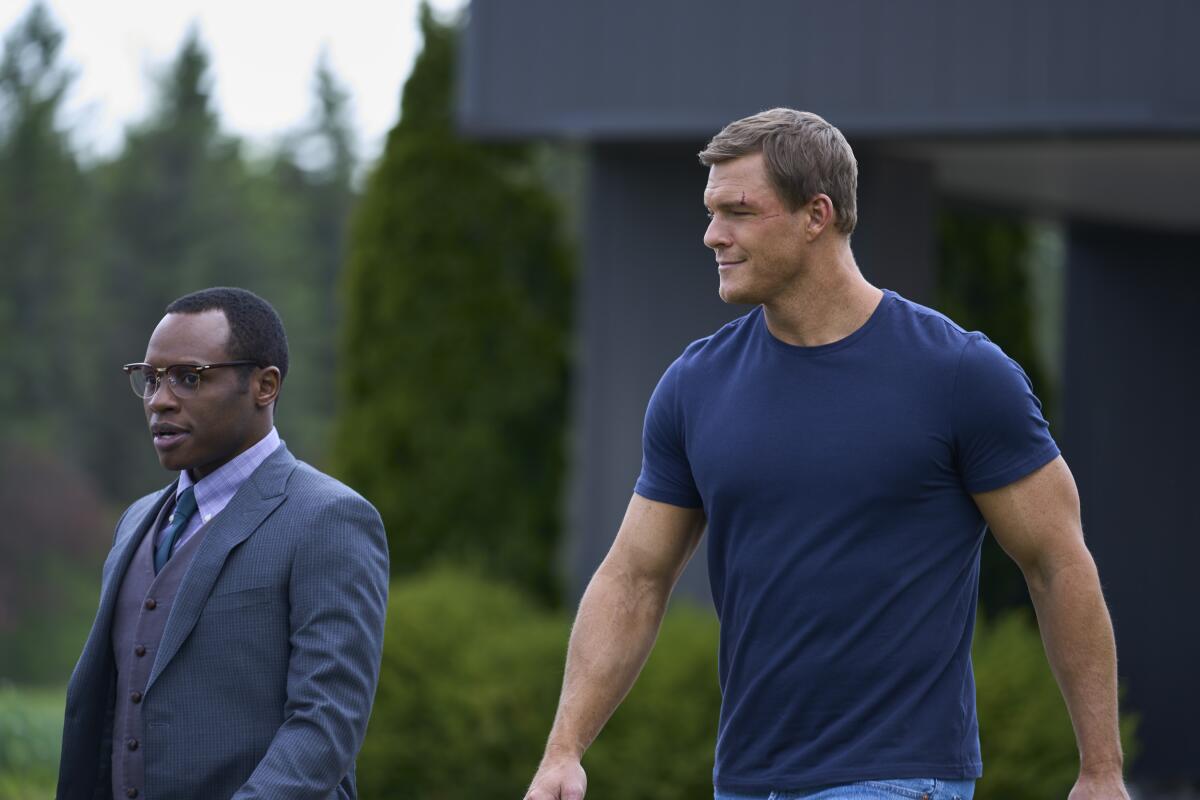
Amazon’s “Reacher” (no exclamation point) is the serialized adaptation of Lee Child’s first Jack Reacher book, “Killing Floor.” And it’s macho enough that you may sprout a few hairs on your chest by reading this. Reacher (Alan Ritchson), as everyone calls him — including his mother — is as much a man’s man as any manifestation of manliness on TV. So much so that we made this handy guide to the Five Manly Tropes of “Reacher.”
He’s an invincible genius. “Reacher” answers the age-old question, “What if Sherlock Holmes had been irradiated by gamma rays?” Not only is his godlike 6-foot-5, 250-pound physique oft-discussed (and, yes, this is the role Tom Cruise played in two movies), his unerring investigative prowess also humbles mere mortals. This guy sees all, understands all. Aggressively glances at a dark crime scene and growls, “The moon would have been 26 degrees over two nights ago …” And when he’s not serving as a celestial almanac, he brawls with crowds of puny humans. He’s occasionally stabbed or whatever but doesn’t need stitches, no way!
He knows the law. It just doesn’t apply to him. Early on, Reacher — former military investigator, now wandering superhero — declines a cavity-search request, explaining it’s illegal and unconstitutional. Then, for the rest of the series, he breaks every pathetic little statute in his path (including jaywalking, buying stuff with counterfeit cash, oh, and homiciding; he does the homiciding quite a bit). Takeaway: The law matters. Though it’s more of a suggestion when there are tibias begging to be snapped.
He’s got jokes. What’s sadistic machismo without one-liners? Asked what happened after encounters with henchmen, he mirthlessly cracks wise about killing guys. The one in the trailer is representative: “You’re gonna kill a lot of people, aren’t you?” “I’ve already started.” It’s a moment that could be improved only by a smile to the camera: freeze-frame with teeth gleaming, music sting and the title card.
It’s really a buddy-cop movie. There’s a stuffy, by-the-book partner to set up Reacher’s freewheeling bad-boy, “I just killed a guy” quips — and he’s a diminutive Black Bostonian (Malcolm Goodwin) in a tiny Georgia town. There are plenty of “Odd Couple” moments (“Hey don’t kill that guy … Oh, Reacher”) as these opposites eventually attract.
Neither he nor the show have a glimmer of self-awareness. He’s the kind of fella who tells soon-to-be punching bags exactly what he’s going to do to them before doing it, because that’s manlier than just, you know, doing it. By the way, he’s a combat veteran who says, “Someone takes your life, it’s always personal” and is into torture. (When told a suspect won’t tell him anything, he smiles and says, “Depends on how I ask” — it’s unlikely he’s threatening flattery.) Sure, he’s the ultimate detective, but the answers tend to come in hails of haymakers. If there were a sensitive ’90s theme song to the show, it would be “Punching a Mystery.” —Michael Ordoña
What’s next
The TV shows and streaming movies to keep an eye on in the coming week
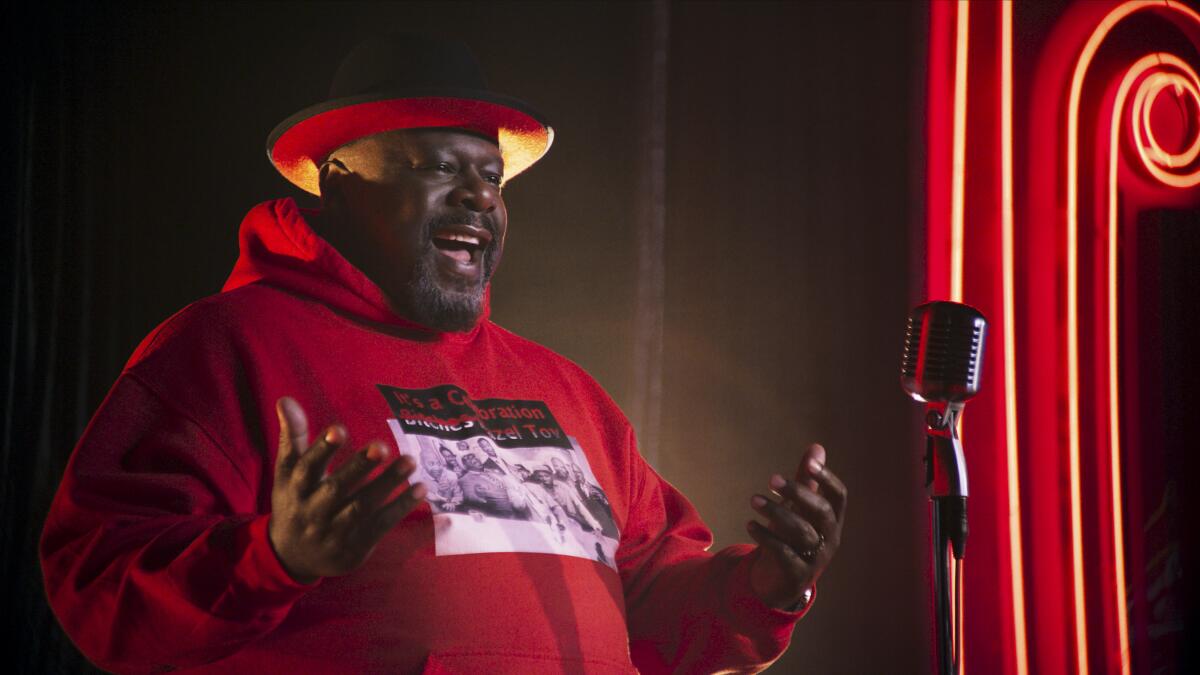
Fri., Feb. 4
2022 Winter Olympics Opening Ceremony (NBC): The Beijing Games begin with the usual pomp and circumstance, airing live at 3:30 a.m. PT.
“Phat Tuesdays” (Amazon Prime Video): As our critic Robert Lloyd writes, Reginald Hudlin’s docuseries is an inspirational oral history of L.A.’s Black comedy scene, focused on the Comedy Store night of the title.
“Suspicion” (Apple TV+): Uma Thurman and Noah Emmerich are the top names in this thriller, based on Israel’s “False Flag.”
Sun., Feb. 6
“Power Book IV: Force” (Starz): The “Power” universe shows no signs of slowing with the latest chapter in the franchise, starring Joseph Sikora as Tommy Egan.
Tues., Feb. 8
“Jeopardy! National College Championship” (ABC): After last summer’s hosting brouhaha and Amy Schneider’s winning streak, Mayim Bialik finally makes her debut as permanent host of the game show’s prime-time specials.
Wed., Feb. 9
“Snowdrop” (Disney+): The streamer best known for Marvel and “Star Wars” gets in on the K-drama craze with this period piece — it hurts to say that about a series set in 1987 — about a young woman who harbors a man she finds covered in blood. With Blackpink’s Jisoo as the female lead.
Thurs., Feb 10
“The Girl Before” (HBO Max): Gugu Mbatha-Raw plays a PR executive who moves into an architect’s (David Oyelowo) to-die-for home and finds herself subject to some strange rules. Things go south from here, as you might expect.
“Kimi” (HBO Max): Director Steven Soderbergh’s straight-to-streaming era has been a triumph, crossing the wires of the made-for-TV movie and the art-house hit to produce urbane, canny portraits of contemporary culture like “High Flying Bird” (basketball) and “Let Them All Talk” (publishing). His latest, “Kimi” (tech), stars Zoë Kravitz as an agoraphobe who must overcome her fears when she discovers evidence of a crime.
The biggest entertainment stories
Get our big stories about Hollywood, film, television, music, arts, culture and more right in your inbox as soon as they publish.
You may occasionally receive promotional content from the Los Angeles Times.



